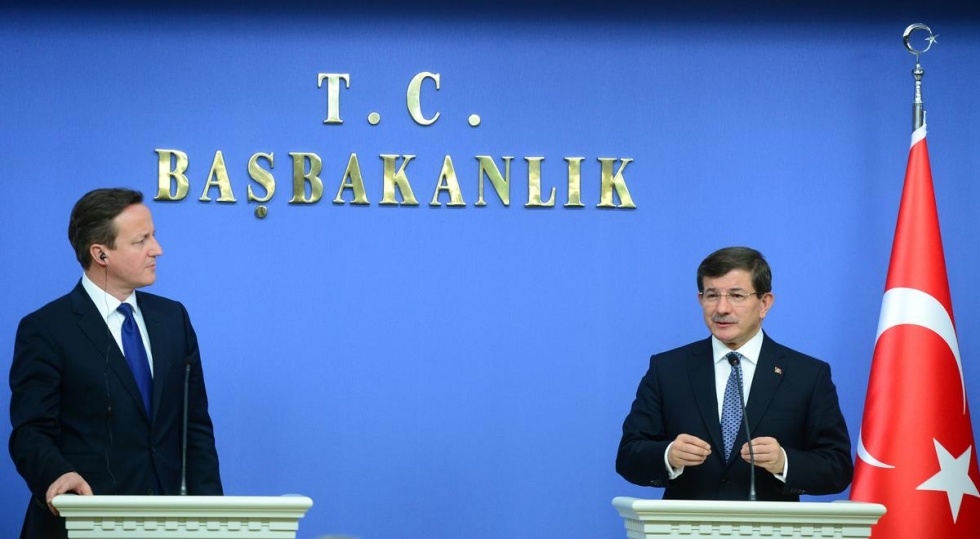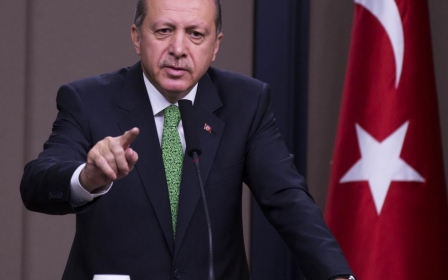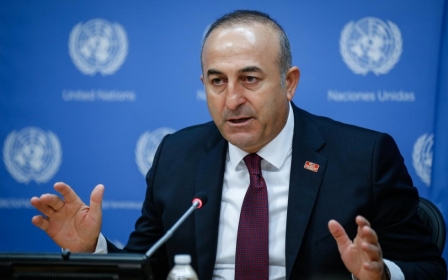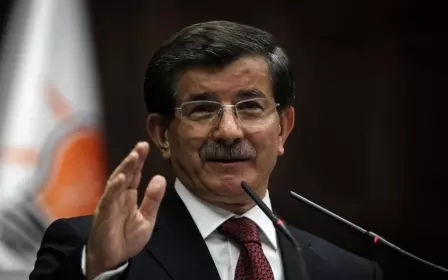Turkey, Britain work 'closely' to stop foreign fighters flow

Britain and Turkey are working "as closely as possible" to stop foreign fighters joining Islamic State insurgents in Iraq and Syria, British Prime Minister David Cameron said on Tuesday.
"We are fighting a common enemy, extremist terrorism," Cameron told a joint news conference in Ankara with his Turkish counterpart Ahmet Davutoglu.
Britain has said it is facing the biggest terrorism threat in its history, in part because of the fear that British fighters returning from Syria and Iraq could launch attacks on home soil.
More than 500 Britons are believed to have crossed into Iraq and Syria to fight with IS militants. Around half of those are thought to have returned to Britain.
Many fighters are believed to have used Turkey, which borders Syria and Iraq, as a transit point to travel to the region.
"The prime minister and I have agreed we should exchange even more information, we should cooperate more in terms of intelligence," Cameron said.
"This is all about making sure people are safer in Turkey, and making sure people are safer back home in the United Kingdom."
He said the talks also focused on a "long-term strategy to defeat ISIL and to restore stability in this part of the world," referring to an alternative acronym for the IS group.
"What we need in Iraq is what we need in Syria. We need to see new government that represents all of the people," Cameron said.
Davutoglu rebuffed criticism that Turkey, a vocal critic of Syrian President Bashar al-Assad, has allowed fighters to pass through its territory to fight in Syria.
"Turkey has never and will never tolerate the transit of foreign fighters via Turkish soil or their presence in Syria," he said, branding IS as a "threat" to Turkey's national security.
"Nobody can dispute Turkey's determination in the fight against terrorism," he added.
Turkey wants a wider strategy for Syria that would ultimately bring the downfall of Assad's rule.
It has repeatedly called for a buffer zone, backed by a no-fly zone, to be put in place inside the war-torn country on the Turkish border.
Cameron said he shared Turkey's long-term strategy on Syria and Iraq.
"We need to see governments that can represent all of their people, whether it is Sunni or Shiite or Kurd."
"It is important, particularly in this time of the year when the weather is so cold, we make sure we look after those people and give them a good future," the British premier added.
Cameron’s visit to Turkey comes weeks after he said Britain had to take action to deal with the threat posed by “foreign fighters planning attacks against our people."
Cameron’s visit coincided with that of Federica Mogherini, the High Representative of the EU for Foreign Affairs and Security Policy, who visited a refugee camp on Turkey’s southern border Tuesday.
Later, the British premier met Turkish President Recep Tayyip Erdogan.
UN envoy holds 'constructive' talks with Syria rebels
Meanwhile, the UN envoy to Syria held "constructive" talks with rebel groups on a plan to suspend fighting in the country's second city of Aleppo, his spokeswoman told AFP on Tuesday.
A day after Staffan de Mistura's meetings in Gaziantep, Turkey, one rebel chief said he was awaiting a "written proposal from the UN, with all the details, before announcing a decision".
De Mistura's spokeswoman, Juliette Touma, said the envoy had found his six meetings "with representatives of the most important armed and unarmed groups from Aleppo to be constructive".
De Mistura announced his plan for a "freeze" in fighting in late October, following a series of failed international efforts to negotiate an end to Syria's conflict which erupted in March 2011.
He has since said Aleppo is a "good candidate" for the bid.
Aleppo has been divided between government control in the west and rebel control in the east since mid-2012.
De Mistura's initiative does not include "all the required mechanisms and guarantees", said Qais Sheikh, head of the Revolutionary Command Council (RCC), a coalition of several dozen moderate and Islamist opposition groups.
The envoy "has built his plan on a series of convictions that are different from ours," said Sheikh, one of the leaders who met with de Mistura.
"So we asked him for a written plan that includes all the details so that we can discuss it in the RCC and with our allies in the opposition," he told AFP.
The Syrian government, for its part, has responded with "constructive interest" to the Aleppo plan, de Mistura said last month after talks in Damascus with President Bashar al-Assad.
De Mistura's deputy, Ramzi Ezzedine Ramzi, is to visit Damascus at the end of this week for further discussions on the plan.
New MEE newsletter: Jerusalem Dispatch
Sign up to get the latest insights and analysis on Israel-Palestine, alongside Turkey Unpacked and other MEE newsletters
Middle East Eye delivers independent and unrivalled coverage and analysis of the Middle East, North Africa and beyond. To learn more about republishing this content and the associated fees, please fill out this form. More about MEE can be found here.




